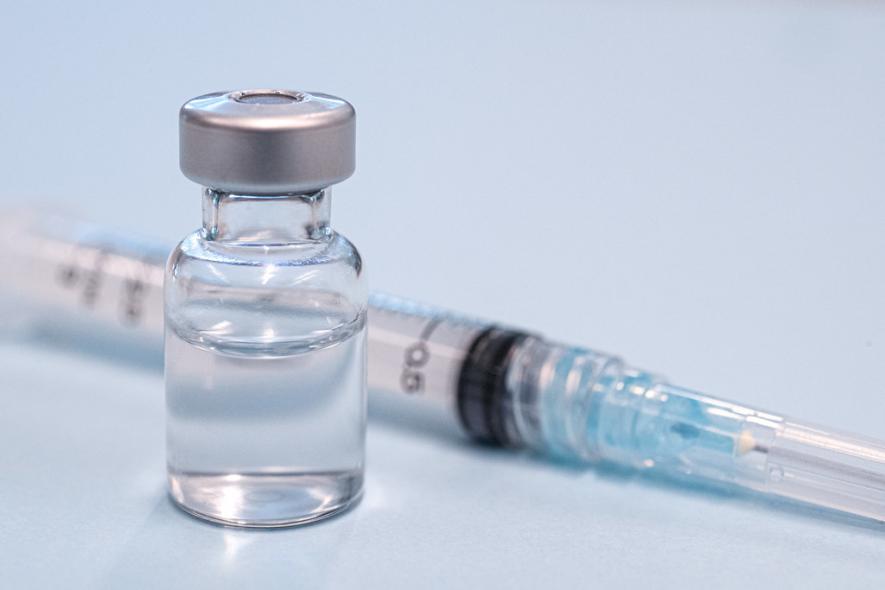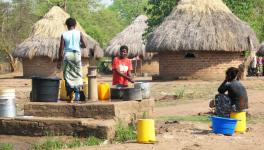Cholera is on Rise Globally, But Supply of Vaccines Falling Short

Representational Image. Image Courtesy: Flickr
Cholera is on the surge in many parts of the world, with Haiti in a concerning situation. The World Health Organization (WHO) report says that Haiti has witnessed the start of a surge in cholera cases during the last of September and early October this year. This is a worrisome scenario in Haiti; first, because cholera has made a return to Haiti after more than three years; second, the ongoing political situation and the humanitarian crisis have already created chaos in the health sector.
According to the Haitian Ministry of Public Health and Population (MSPP), the number of confirmed cholera cases was over 600 till November 7. In addition, there are 6500 suspected cases in the greater port-au-Prince area. The new surge of cholera has brought back the haunted memories of the previous epidemic between 2010 and 2019, which killed over 10,000 Haitians.
The renewed surge of cholera is not confined to Haiti alone. Lebanon reported the first confirmed case soon after Haiti. The Lebanon case involved a Syrian refugee and a health care worker, and with this confirmed case, cholera entered here after 1993. The cases spread quickly, and the health workers fear that the situation may worsen given the condition of the health system of the country. Kenya also reported confirmed cholera cases hereafter.
According to WHO, till now, cholera outbreaks have been reported by 30 countries, which is unprecedented. Notably, for the last five years, the average number of countries that report cholera outbreaks has been 20. Experts opine that the trend of outbreaks is upward, with the chance of spreading to more countries and regions for a long duration.
Cholera is a bacteria-borne disease—Vibrio cholerae is the bacterium that spreads mainly through water and food, and infected patients suffer severe diarrhoea. Cholera kills 20,000 to 140,000 people in a year. The unavailability of clean drinking water, worsened by natural disasters and political conflicts, has powered this disease’s spread for decades in many parts of the world.
Amidst the worsening scenario of a renewed surge in cholera worldwide, a massive scarcity of cholera vaccines is emerging. The global stockpile of cholera vaccine has fallen short to such an extent that healthcare organisations are forced to ration the doses of it. This has also forced the healthcare system in many parts of the world to rethink its control strategy.
The cholera vaccine was made from the bacterium Vibrio Cholarae lacking parts of its toxins. In the vaccine, the toxin-less bacterium is used in an inactivated form and was approved in 2015. Hereafter, millions of doses were added to the international stockpile of the vaccine for emergency use. Moreover, WHO, along with other international partners, initiated the ambitious project of reducing deaths by cholera to 90% and eliminating it by 2030 in 20 countries. One primary component of the ambitious project was vaccination. The cholera vaccine is administered in two doses within a gap of two weeks.
But sadly, with the worldwide surges of cholera outbreaks, the massive supply shortage of the vaccine has created panic in many affected countries. The WHO reported that the two-dose administration of the vaccine was temporarily suspended. This showed the grave insufficiency of the vaccine stockpile. Currently, the vaccination process has been shifted to a single-dose strategy.
The stockpile coordinated by international organisations like the WHO, MSF (Doctors without borders), UNICEF and the International Federation of the Red Cross and Red Crescent Societies was expected to ship some 36 million doses to different countries. However, this number would be enough to vaccinate 18 million people (with the two-dose strategy), which is a little given the way the outbreaks are spreading. To address the crisis, the coordinating organisations decided to adopt the one-dose strategy.
Experts opined on the shift of strategy with their concerns. David Sack, an infectious disease expert at Johns Hopkins University, in a statement to the Science said that he was rather puzzled about the decision to abandon the second dose. Sack and his colleagues published the result of their clinical trial, where they found that a gap of one year instead of two weeks strengthens immunity.
According to Philippe Barboza, the head of WHO’s Cholera and Epidemic Diarrheal Diseases section, a vaccine remains the most effective way of addressing the crisis. However, the required number of doses will not be abundant soon, despite international efforts to gear up the process.
Barboza also opined that extreme weather events due to climate change have contributed to the surge of the disease. “Droughts in West Africa and the Horn of Africa, massive flooding in Southeast Asia, and cyclones in southern Africa have displaced people and destroyed water and sanitation infrastructure. COVID-19’s toll on the healthcare system made matters worse. The cholera case fatality rate in Africa was almost 3% in 2021, about three times higher than over the previous five years," Barboza said in a statement.
“Every time we have investigated why the [death rate] was so high, the reason was the same: delayed access to healthcare," he remarked.
Get the latest reports & analysis with people's perspective on Protests, movements & deep analytical videos, discussions of the current affairs in your Telegram app. Subscribe to NewsClick's Telegram channel & get Real-Time updates on stories, as they get published on our website.















